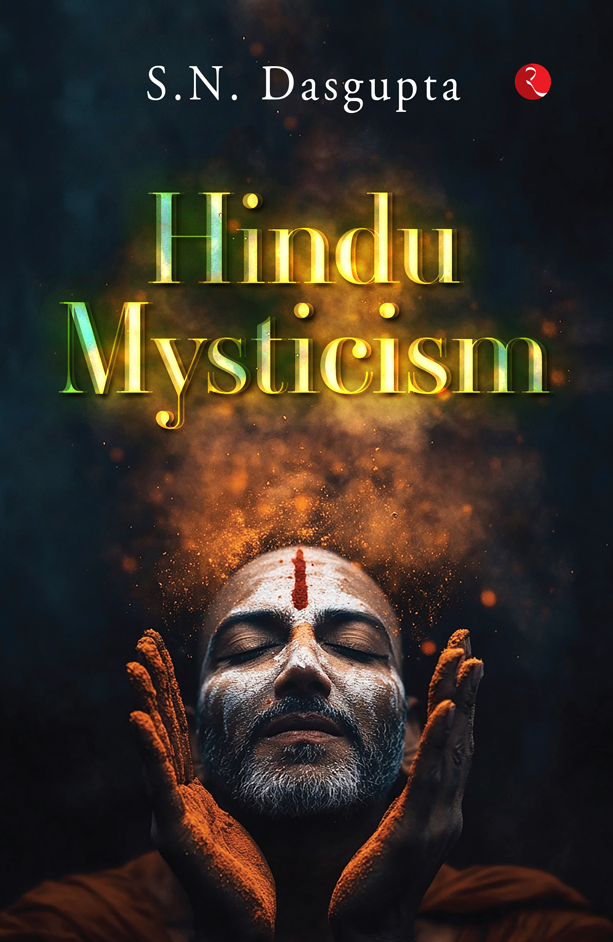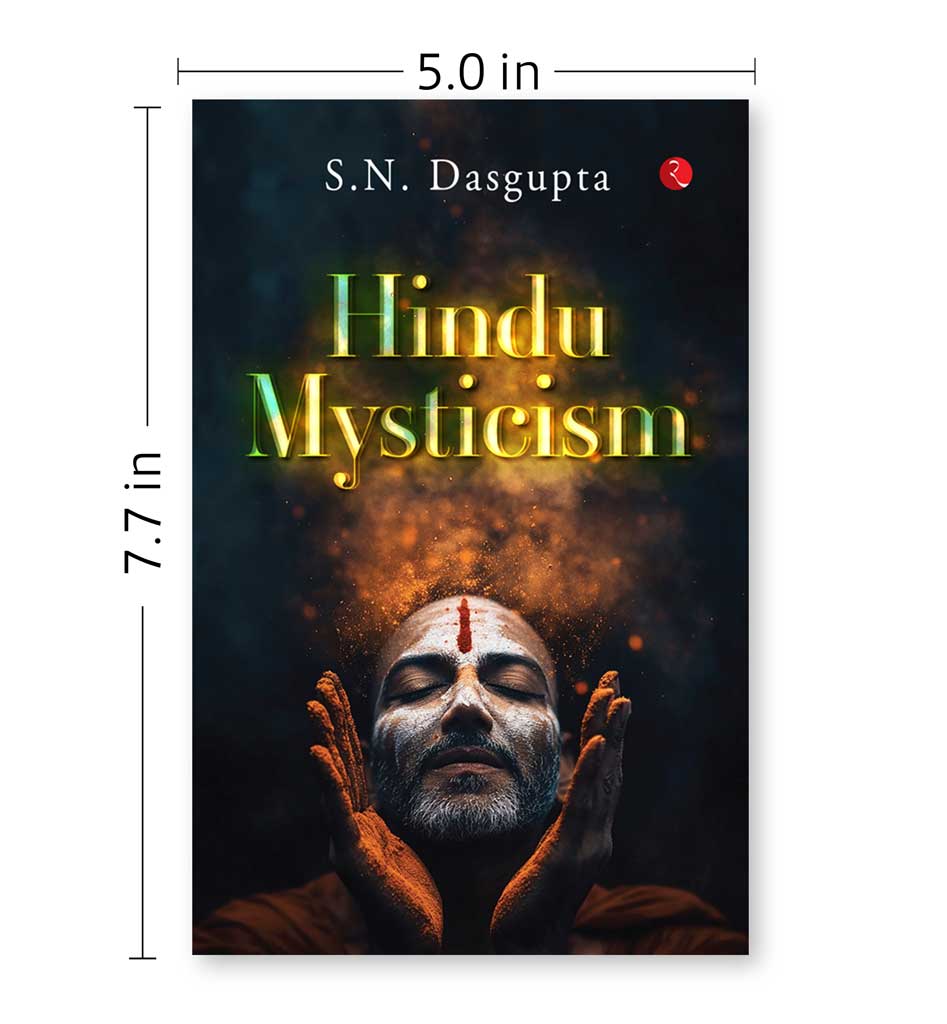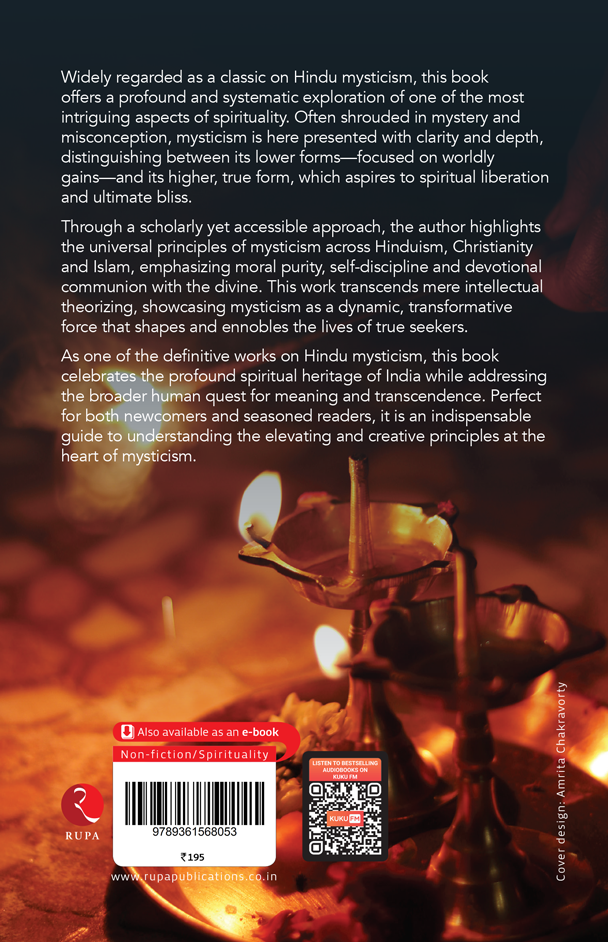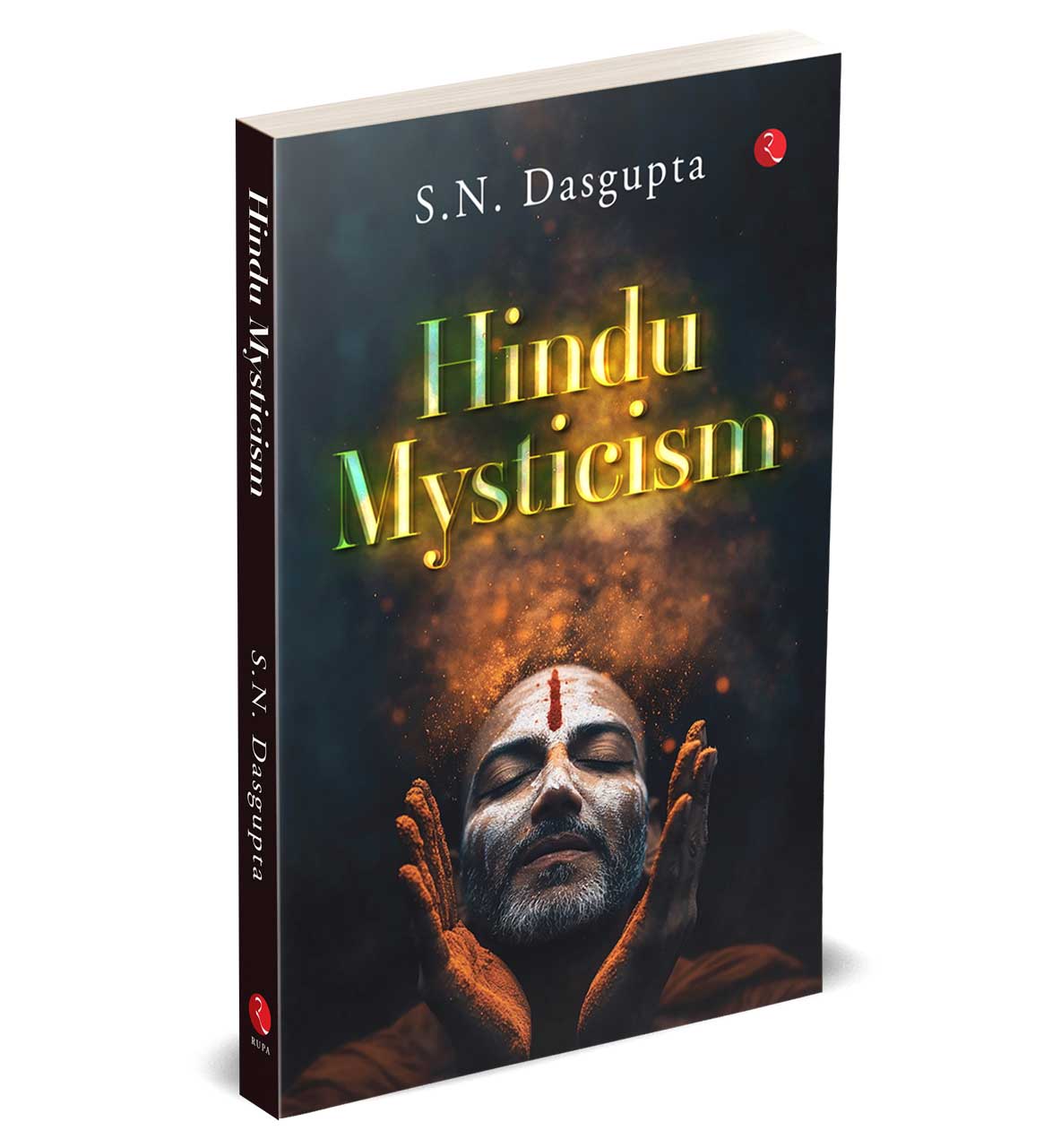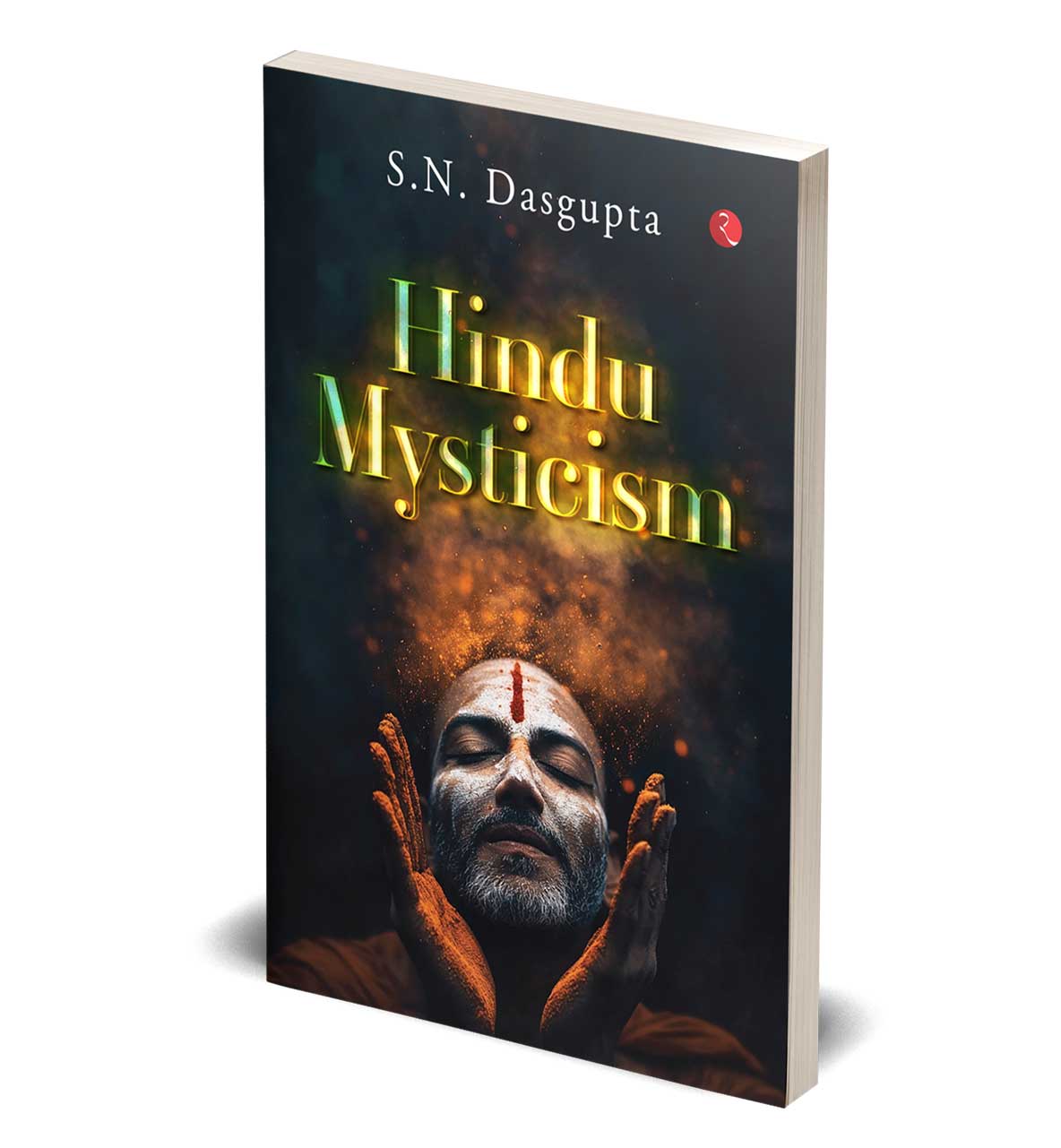Widely regarded as a classic on Hindu mysticism, this book offers a profound and systematic exploration of one of the most intriguing aspects of spirituality. Often shrouded in mystery and misconception, mysticism is here presented with clarity and depth, distinguishing between its lower forms—focused on worldly gains—and its higher, true form, which aspires to spiritual liberation and ultimate bliss.
Through a scholarly yet accessible approach, the author highlights the universal principles of mysticism across Hinduism, Christianity and Islam, emphasizing moral purity, self-discipline and devotional communion with the divine. This work transcends mere intellectual theorizing, showcasing mysticism as a dynamic, transformative force that shapes and ennobles the lives of true seekers.
As one of the definitive works on Hindu mysticism, this book celebrates the profound spiritual heritage of India while addressing the broader human quest for meaning and transcendence. Perfect for both newcomers and seasoned readers, it is an indispensable guide to understanding the elevating and creative principles at the heart of mysticism





